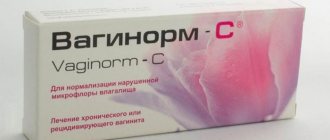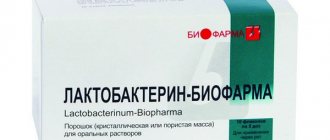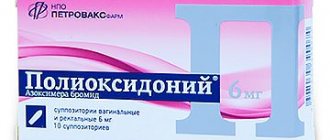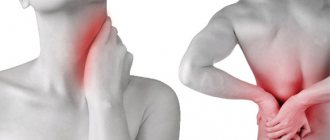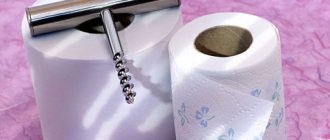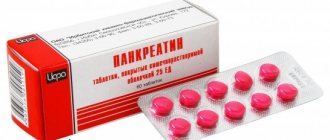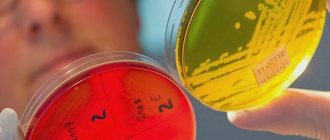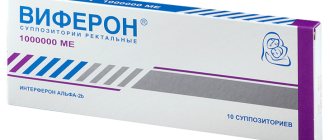Suppositories for children against constipation are the first and very effective remedy that should be purchased in your first aid kit. It is known that the most common problem of a newborn is his bowel movement: the child either empties normally, or pushes to no avail for several days in a row.
Of course, parents, exhausted, are trying to find an effective way to help their child. For infants and preschool children, the optimal medical remedy for inducing stool is completely safe suppositories, especially sea buckthorn suppositories.
To make these suppositories, pharmacists mix sea buckthorn oil, extracted from dried fruits, with a hardened fatty base. In addition, suppositories may include stabilizers and emulsifiers, which ensure the stability of this drug, as well as a long shelf life. Can children use sea buckthorn suppositories for constipation and fissures? Let's figure it out.
Positive traits
Suppositories based on sea buckthorn oil are still often used today, although the development of modern medicine has led to the emergence of a large number of remedies for the unpleasant symptom that occurs in a child.
It is quite possible that this quality is due to the rather rapid effect of using suppositories, and relief is felt almost immediately. There are no scary names in the candles, which cause some suspicion in all parents. Sea buckthorn oil is a completely understandable and safe component. In addition, these candles have a pleasant aroma.
Types of drugs
There are no special suppositories for constipation for infants, but there are approved medications that can be used if a problem occurs. List of the safest and most effective candles.
Glycerin suppositories are considered the most popular and safest. The instructions suggest their use from the first days of life. Glycerin suppositories soften stool and promote their natural removal. The action occurs within 30 minutes. One suppository contains 1.24 glycerol. If a Glycerin suppository is used for newborns, it is recommended to divide the suppository into three more parts. Do not use it for more than three days in a row.
Glycerin suppositories are most often prescribed for newborns. The active ingredient of the drug is not absorbed into the intestinal walls, so there is no systemic effect on the body. But, like any other laxatives, Glycerin suppositories do not cure, but only relieve symptoms.
Another drug is Glycelax, which has a laxative effect. It contains 0.75 g of the active ingredient glycerol. The components irritate the intestinal walls, stimulate peristalsis and soften stool. As a result, natural bowel movement occurs. The act of defecation usually occurs within the first 15 minutes after the administration of the suppository, but can occur after 1.5 hours.
Glycelax children's suppositories do not have a negative effect on other organs, since the components do not penetrate the systemic bloodstream. Continuous treatment is allowed for no longer than 5–7 days. For children under one month old, you can divide the candle into two or three parts. If the divided dosage does not lead to the desired result, after two hours you can re-administer the drug in a larger dosage.
Pharmacological composition
Sea buckthorn has long been an extremely valuable natural concentrate of nutritional and beneficial qualities. Its unique qualities are due to the optimal balance of proportions, which provide a relatively quick healing effect.
So, sea buckthorn oil contains a lot of vitamins, flavonoids, phytoncides, carotenoids, tannins, as well as glycerides of organic acids. It is these active ingredients that make sea buckthorn oil a truly universal drug in modern cosmetology and pharmaceuticals.
Sea buckthorn extract has the following properties:
- Anti-inflammatory – sea buckthorn oil inhibits the production of the source of inflammation, significantly reducing the property of vascular permeability, effectively eliminating redness, swelling and soreness, and quite quickly restores the blood supply to damaged tissues of the anus.
- Antioxidant - the agent neutralizes intracellular free radicals, eliminating their susceptibility to adverse effects, and also significantly reducing the possibility of cell membrane division.
- Antibacterial – the oil has a bacteriostatic effect; it can limit and somewhat inhibit the growth of pathological microflora and some types of fungi.
- Cytostatic - since the oil of this plant contains fatty acids, which are an important component of cell membrane structures, it stimulates their regeneration, ensuring optimal membrane thickness, thereby preventing the introduction of pathological agents into cells.
- The regenerating effect consists of more accelerated epithelization of the skin and mucous membrane.
- The astringent quality of sea buckthorn oil is ensured by the existing tannins, which will form a thin film on the mucous membrane to reliably protect the anus from mechanical damage and irritation, which accelerates its healing.
- Sea buckthorn oil, from which suppositories are made, reduces the removal of accumulated fluid between tissues when ruptures occur.
Contraindications
And although sea buckthorn suppositories are suitable for children, there are some contraindications. It is very important to begin by noting that suppositories made from purified oil of this plant are not advisable for use by a child if his age is less than 6 years. In addition, sea buckthorn suppositories are not recommended for use by children with rectal fissures and tumors formed in the large intestine.
Treatment of children with sea buckthorn suppositories is usually well tolerated, since this herbal remedy has a relatively low ability to cause an allergic reaction.
Contraindications to the use of sea buckthorn suppositories in childhood are individual sensitivity and diarrhea. The most common adverse reactions are discomfort in the anal area, as well as a laxative effect.
If the dosage is incorrectly prescribed and the uncontrolled use and abuse of sea buckthorn suppositories, they can only aggravate the situation, cause allergies, fecal obstruction, indigestion, and addiction. It may happen that for a child's intestines, which are not irritated from the outside, the problem of normal going to the toilet becomes problematic.
Causes of problems with bowel movements
Constipation is a prolonged absence of stool or incomplete bowel movements.
In children of the first year of life, the norm is to have bowel movements up to 7-8 times a day (ideally after any meal). As the baby grows, trips to the toilet decrease to 1-2 times. If the child does not poop for three days, you should help the child and determine the reasons for the delay in defecation. Before answering the question “what suppositories are inserted into a child for constipation,” it is necessary to determine the possible reason for the lack of bowel movements.
Causes of stool retention in children:
- Changing the type of feeding.
- Sedentary lifestyle.
- Stress test.
- Use of iron-based supplements.
- Infections and congenital pathologies.
Only a doctor can identify the true cause, so if your baby experiences constipation quite often, seek help from a specialist. Naturally, before finding out the cause, you need to choose the right drug and improve the child’s situation. For constipation in children, laxative suppositories or products in the form of syrups, drops, capsules, tablets or powder are used orally.
Children can only use two types:
- glycerin - soak and promote excretion of feces;
- gas-forming suppositories, which, when the drug dissolves, creates gas, and the baby begins to feel the urge to defecate.
Glycerin suppositories are more effective and safe, so they must be present in the children's medicine cabinet.
People with a sedentary lifestyle, improperly organized nutrition and excess weight are primarily susceptible to the manifestation of such troubles. This results in improper bowel function and frequent constipation. Hard feces filling the intestines, sedentary work, and lack of physical activity create increased pressure in the pelvic area.
Pregnancy and childbirth provoke the development of problems with the anal mucosa. Constipation and, as a consequence, the development of hemorrhoids of various stages become a frequent companion of pregnant women. Failure to comply with minimum hygiene requirements contributes to the appearance of cracks. I would like to note that the usual solution to using toilet paper is wrong.
Cracks in the anus can also occur after mechanical intervention - a carelessly inserted enema, a recent rectal examination, anal sex.
Inflammatory processes in the form of diarrhea, infection with worms or dysbacteriosis also negatively affect the condition of the rectal mucosa.
Rules for introducing suppositories
According to the instructions for sea buckthorn suppositories for children, suppositories are prescribed for a period of up to one week: children over 6 years old should be administered 1 suppository per day, and children 6-14 years old should be administered one suppository in the morning and evening.
First, you should carefully read the instructions attached to them, taking into account the contraindications described in it. If a child is hypersensitive to certain components of the suppositories, the drug should be used in a different form of release.
Candles should be stored in the refrigerator, and they should be removed from there immediately before use. You need to take the plastic packaging and tear it apart by pulling at the marked places. Before inserting the suppository, the small patient needs to empty the intestines, for example, by doing an enema with cool water.
To make it easier and more convenient to administer sea buckthorn suppositories, the child should be placed on his side, and his knees should be pressed well as close to the chest as possible. To make the process easier, you can lubricate the child’s anus with Vaseline and spread the buttocks well. The candle is inserted with a sharp end into the anus, pressing with a finger until the resistance of the sphincter disappears.
To prevent the drug from slipping out after its administration, you need to keep your buttocks squeezed a little. Under the influence of temperature, the sea buckthorn suppository will begin to melt and its contents will spread.
It is worth noting that some oil may leak out. It is known that sea buckthorn has a coloring property, so children are advised to use soft hygiene products during treatment, as well as wear tight-fitting underwear. You can also use gauze pads. To increase the duration of action, doctors advise installing suppositories before bedtime.
What kind of candles are allowed from 10 years of age?
If constipation occurs in a child over 10 years of age, choosing medications to ease bowel movements is much easier. Mothers don’t have to rack their brains about how to help their baby, because most medications for adults are approved for use at this age.
You can opt for saline preparations with a laxative effect, use not only suppositories, but also tablets or capsules for internal use.
However, many parents continue to turn to rectal suppositories for help. For children over 10 years of age, all of the above drugs are suitable. If you habitually use glycerin or sea buckthorn suppositories, use 1-2 pcs. in a day. Use Viburcol as needed: maximum dosage for adults and adolescents – 1 pc. 3-5 times a day.
Best before date
Typically, the period until which sea buckthorn suppositories can be taken for children with cracks and constipation is indicated on their packaging. It can be two years, but only if the correct storage conditions are provided.
But if after some time the candles began to change their shade, began to leak, or a strange smell began to emanate from them, it is not recommended for either a child or an adult to use them. Otherwise, the patient's symptoms may worsen significantly and an allergic reaction may occur.
What suppositories should newborns use for constipation?
Constipation occurs not only in older children, but also in newborns, starting from the first months of life, and there can be several reasons. To alleviate the condition of the baby and empty the intestines, you can use glycerin or sea buckthorn suppositories, as well as the homeopathic drug Viburkol. Let's discuss the merits of each of these medications.
Glycerin suppositories for infants
They contain glycerin and auxiliary components. The task of the first is to stimulate peristalsis by irritating the intestinal mucosa. Auxiliary ingredients soften stool to facilitate its movement through the gastrointestinal tract.
After insertion into the rectum, glycerin suppositories are absorbed within 15-20 minutes, so the drug cannot be called a quick-acting remedy. Depending on the duration of constipation and the condition of the intestines, defecation can occur either after 10-30 minutes or after a day.
There are many analogues of candles:
- Glycerax suppositories for children 0.75 g No. 10 (Moscow Form Factory);
- Glycerin 1.24 g No. 10 (Tula FF);
- Glycerin suppositories 1.24 g (Romania);
- Rectal suppositories with glycerin 1.24 g (Nizhpharm).
Glycelax remains the most popular glycerin-based medicine. To help the baby, cut the suppository in half and insert 1 part of the suppository into the anus. For newborns, one such procedure per day is enough.
If, after administering the suppository, the child still does not go to the toilet during the day, do not rush to put a new suppository and exceed the permissible dosage of the medication.
You can try to stimulate bowel movements with Microlax microenemas, and then immediately consult a doctor. Long-term chronic constipation can have various causes, ranging from poor diet to problems with the gastrointestinal tract.
Sea buckthorn suppositories for babies up to one year old for constipation
Another drug recommended for newborns is sea buckthorn suppositories or suppositories with sea buckthorn oil. They contain hard fats and natural vegetable oils, which soften the stool and irritate the colon mucosa.
Reviews of sea buckthorn candles for children
If used incorrectly and uncontrolled, laxative suppositories can contribute to the development of other diseases in a child. If a child experiences frequent constipation, it is recommended to consult a doctor who will help to accurately determine the possible causes of constipation, as well as select the optimal treatment.
Perhaps the problem of constipation in a child can be solved by increasing the amount of vegetables consumed, as well as by increasing activity? In any case, if this piquant problem arises, parents should adjust the baby’s diet. But if the doctor still recommends the use of laxatives, it is important to choose them correctly, as well as store and use them!
Features of the treatment of childhood hemorrhoids
Hemorrhoids are rarely diagnosed in children, so, unfortunately, there are no special treatments. Known drugs for adults are used. Only a pediatrician or pediatric surgeon can prescribe the correct therapy, taking into account the age and condition of the child.
Read also
Instructions for the use of ichthyol suppositories for hemorrhoids
Hemorrhoids in children can be treated with special sitz baths, enemas or medications in the form of rectal suppositories.
Selection is carried out on an individual basis based on the main principles:
- medicine for hemorrhoids for children should be as safe as possible;
- the composition of the preparations is predominantly natural;
- minimum contraindications, adverse reactions;
- the dosage is reduced compared to adults;
- the shape should be comfortable and not cause discomfort to the baby;
- treatment is carried out in short courses;
- Constant medical supervision is required.
The features of antihemorrhoidal therapy largely depend on the age of the child. For newborns and children under 1 year old, it is easy to insert a suppository or lubricate the anus with ointment. You just need to distract the baby with a toy and quickly, but very carefully, perform the manipulations. But with older patients who are already walking, things are more complicated.
Children aged 3 to 5 years are very active. This is a clear advantage for preventing hemorrhoids, so the occurrence of pathology during this period is unlikely. But if it does appear, then treatment is not easy. Parents must have patience and strictly follow the doctor's recommendations.
Suppositories are most often prescribed, therefore:
- It is better to carry out the procedure before bedtime, so the candle will remain inside until completely dissolved and will have the maximum therapeutic effect;
- if necessary, for example, for constipation, it is better to administer the suppository during the daytime - in this case, you will have to distract the child so that he lies down for at least 15-20 minutes or carry him in his arms with his tummy down;
- For small children, the size of the candle is large, it can be divided into several times.
There are suppositories for hemorrhoids consisting of natural ingredients.
Treatment of a school-age child and teenager usually does not cause any problems. Some children carry out the procedure on their own. It is important that at any age it does not cause discomfort. If the child cries a lot with each injection or complains of discomfort, you should stop everything and consult a pediatrician.

